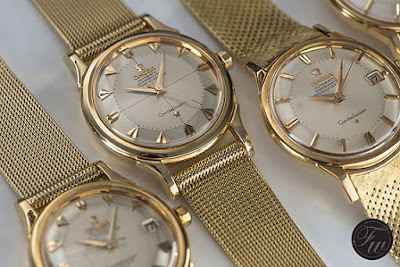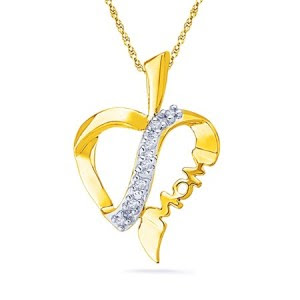How To Buy Vintage Watches
As noted in my other article about buying pre-owned watches, the market for truly “vintage” watches is something quite different from that for relatively young “pre-owned” watches. Any watch made before 1990 could be considered vintage, although some collectors put the maximum year of “vintage” at 1980 or even earlier. I’d like to use 1990 as the baseline for this article, which offers my tips on buying vintage watches, but in the end you’ll have to decide for yourself whether a given watch is old enough for you to qualify it as “vintage.”
There are two very important questions to consider when it comes to buying vintage watches:
• Can you and do you trust the seller of the watch?
Does the seller have a good reputation when it comes to selling vintage watches? Investigate! There are enough forums, Facebook groups and blogs out there that might have mentioned the seller in a positive — or negative — manner. Although it might sound cliché, also learn to trust your gut feelings. If the purchase doesn’t feel good or legit, let it go, and rest assured that another nice vintage piece will come along.
• Have you gained as much knowledge as you can on the watch you want to buy?
Reading WatchTime and WatchTime.com is always an excellent source of info (of course)! But also take a look at other partner watch blogs like Watch-Insider, Fratello Watches and so on. There is quite a bit of coverage out there on vintage watches. Google is your best friend if you’re just starting out. Sometimes you will find relatively small websites that specialize in just one brand or even one model, and these can be gems. An example is this website on vintage Omega Constellation watches. A truly amazing source of information, and all for free. And along with websites, we also have these old-fashioned things called books. Don’t forget about those.
The publisher Mondani has done a good job on documenting Rolex watches, but another book on Speedmaster watches (by WatchPrint), Moonwatch Only, sets new standards. Books such as these may seem expensive, but they can prevent you from making mistakes that will cost you a fortune later. Read here why you should invest in a good book on watches. In the WatchTime Shop, you will find a selection of available titles that might be of use as well. Another interesting source of information are the auction-house websites and catalogs.
Beyond all that, there are a few other things to consider, some of which I addressed in my article on pre-owned watches in general. On the next page, I will address them specifically for vintage watches:
Service history
Don’t expect invoices from the 1950s and 1960s to be included in the sale. I assume your parents or grandparents don’t have these anymore either, do they? It is important that a vintage watch is technically in good working order. If not, you can go through hell with regards to the availability (and prices!) of spare parts. It can be a long road. I had to wait for over a year on a silly movement part for one of my 1950s Omegas. Some watchmakers are able to reproduce the parts themselves, or reuse something from another movement. It would be best if the watch is serviced at the manufacture, but having receipts from a good watchmaker will also do the job — as long as there is some kind of proof that the watch has been taken care of.
Box and papers
If a watch is 30 or 40 years old, it is quite common that its original boxes and manuals are gone. If possible, make sure to get the correct box for your watch. It should match the actual watch or at least be period-correct. Through the years, some watch brands used different boxes for their watches. Some brands can supply you with information on the correct boxes and manuals.
One more topic I would mention is “provenance.” Be very careful when a watch seller offers you items that speak to a watch’s provenance in order to prove to you that it is authentic. These may include photos of people wearing the watch to napkins with the signature of the first owner. I’m not joking here, unfortunately. Only real provenance counts. Acceptable items include invoices with mention of the correct serial number and/or movement number and the work performed on the watch, as well as original, stamped papers and warranty cards. Do not pay a premium for items that look fishy or have the slightest signs of being fabricated to make a sale.
So what are the best places to find some of these beautiful timepieces? I’m glad you asked. Keep reading.
I have left out one of the most obvious sources — watch auctions — as I have covered that topic in detail elsewhere previously.
• Watch Dealers
Yes, this is another obvious one. Many of these have websites where they list their stock, or use websites like Chrono24 to display their stock. Either way, if they don’t have a website and are not close to you to visit, it becomes troublesome. Make sure to get into a daily or weekly routine in which you visit the websites of these watch sellers so you won’t miss out on the “incoming” watches they have. There are some awesome websites, such as www.subgmt.com, which specialize in specific brands and have a great reputation. Make sure to bookmark them and work your way through them. Descriptions and good (repeat: good) photos are key. I’d rather see a picture that doesn’t have the best composition, or beautiful surroundings, but instead shows all the minor details and essentially the watch “as is.” Nowadays, some dealers are nowadays also show their stock on Instagram, so make sure to follow them there, too.
• Watch Forums
I’ve found some of my best timepieces by using watch forums. Most watch forums, like www.watchuseek.com and www.omegaforums.net, have a “sales forum” on which their members can offer their watches. The latter offers not only vintage Omega watches but also a bunch of other brands. Since you are probably dealing with private sellers, please re-read part 1 of this article again to know what you should pay attention to. The great thing about forums is that the prices tend to be more tempting than those offered by watch dealers. Keep in mind that private sellers rarely offer a warranty, so you have to be sure what you are buying. That task can be tackled by checking the posts about these sellers on the forums that offer the watches. Is it a guy who seem to have a good reputation, a good knowledge of the subject, and so on? Do a check!
• Watch Fairs / Trade Shows
As you might be able to tell by my use of the English language, I am not from the U.S.A. So I can’t speak for the watch fairs over there. However, the watch fairs here in Europe (mainly in Germany) are great sources for vintage watches. The only drawback is that you have to decide on the spot to purchase, and do all the checks on the spot as well. Don’t let the seller rush you and ask for his business card when you want to have some time to think it over or do some online checking. Take pictures of the watch with your phone. In any case, always ask for warranty (or at least return policy) when you buy at these fairs. Most of the dealers are professionals that use these fairs to sell their stock but also to buy new watches themselves (they often have an hour ahead of the opening time to do their own “shopping”). There are several overviews available that will let you know about watch fairs nearby. Click here for an overview in Europe, here for an overview in the U.S.A.
There are a couple of groups on Facebook where watches are being offered. Is this Marketplace 2.0? Perhaps not, but it is a very efficient (and free) way to advertise for someone who wants to sell his or her watch. Most of these groups are not open to public, so you have to request membership. This is mainly due to privacy/security reasons. Just go to Facebook and search for Watch Sales or similar phrases. You might find a local group in your region or country where vintage watches are being offered.
• Private Sellers / Classifieds
The ideal scenario would be for a seller to find YOU when he wants to sell a watch. In such cases, these sellers need the money and you will get the best price. However, that’s not very likely to happen if you don’t make yourself known to other watch collectors. When you are active on forums or on watch-related Facebook groups and let people know what kind of vintage watches you are into, you are bound to be offered something sooner or later. My rule of thumb is: if you actively search for a watch, you will pay the highest price. If people come to you to offer their watch, you get the best price.
If you are in search of 14k gold stud earrings and want to know more about it then please contact us in the comment section.









Comments